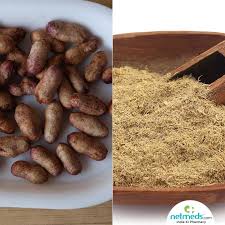
Amla and Weight Loss: Fact or Fiction?
Amla, also known as Indian gooseberry, has been treasured in Ayurvedic medicine for centuries due to its rich nutritional profile and myriad health benefits. Among its many claimed effects, weight loss is a popular one. But is amla truly effective for shedding those extra pounds, or is it just another wellness myth? In this article, we’ll explore the scientific evidence behind amla’s impact on weight management, discuss how it works in the body, and provide practical tips for including amla in your diet for potential weight loss benefits.
Long Description:
Understanding Amla and Its Nutritional Power
Amla (Phyllanthus emblica) is a superfood packed with Vitamin C, antioxidants, fiber, and essential nutrients. These components contribute to overall health and may play a role in weight loss by boosting metabolism, reducing inflammation, and improving digestion.
1. How Amla Supports Weight Loss – The Science
- Boosts Metabolism: Amla is believed to enhance metabolic rate, which means your body burns calories more efficiently. Some studies suggest that the antioxidants in amla help in modulating fat metabolism.
- Improves Digestion: High fiber content in amla supports healthy digestion and regular bowel movements, preventing bloating and constipation that can hinder weight loss efforts.
- Suppresses Appetite: Consuming amla can promote a feeling of fullness, reducing overeating and snacking.
- Reduces Fat Accumulation: Animal studies have indicated that amla extract may inhibit the formation of fat cells and reduce triglyceride levels.
2. Debunking Myths About Amla and Weight Loss
- Not a Miracle Cure: While amla has properties that support weight management, it cannot replace a balanced diet and regular exercise.
- No Instant Results: Weight loss with amla requires consistency and should be part of a holistic lifestyle approach.
3. Best Ways to Incorporate Amla for Weight Management
- Fresh Amla Juice: Consuming freshly squeezed amla juice in the morning helps kickstart metabolism.
- Amla Powder: Add amla powder to smoothies, yogurt, or water for a convenient nutrient boost.
- Amla in Cooking: Use amla in chutneys, pickles, or as a tangy addition to dishes.
- Amla Supplements: Capsules or extracts can be considered after consulting a healthcare professional.
4. Other Health Benefits of Amla That Support Weight Loss
- Blood Sugar Regulation: Stable blood sugar helps prevent cravings and excess fat storage.
- Detoxification: Amla’s detoxifying properties support liver function, essential for fat metabolism.
- Anti-inflammatory Effects: Reducing inflammation helps the body efficiently utilize energy and reduces fat storage.
5. Scientific Evidence and Studies
- Several clinical trials have observed that regular consumption of amla extract leads to reduced body weight, waist circumference, and improved lipid profiles. However, more extensive human studies are needed to confirm these findings fully.
6. Precautions and Possible Side Effects
- Generally safe when consumed in moderate amounts.
- Excess intake may cause acidity or digestive discomfort in some individuals.
- Consult with a healthcare provider if pregnant, breastfeeding, or on medications.
7. Combining Amla with a Healthy Lifestyle
- Amla works best when combined with a balanced diet rich in whole foods, lean proteins, healthy fats, and regular physical activity.
- Staying hydrated and managing stress also amplify the weight loss benefits of amla.
Conclusion:
Amla is a potent natural ingredient with promising weight loss supportive properties. While it is not a magical fat burner, its antioxidant, metabolism-boosting, and digestion-enhancing effects can contribute positively to your weight management journey. Incorporate amla into your daily routine thoughtfully and combine it with healthy habits for the best results.












